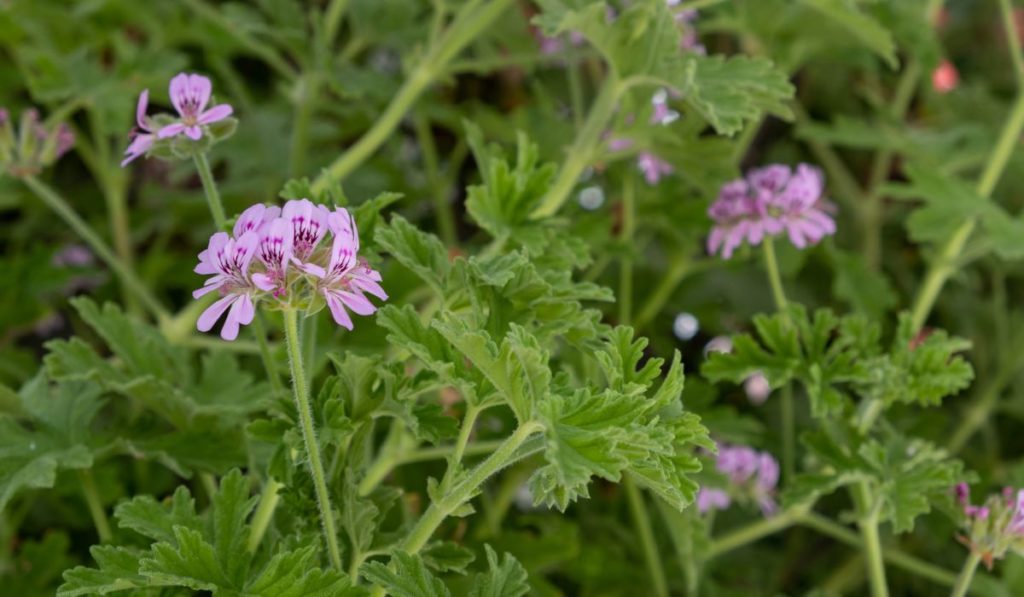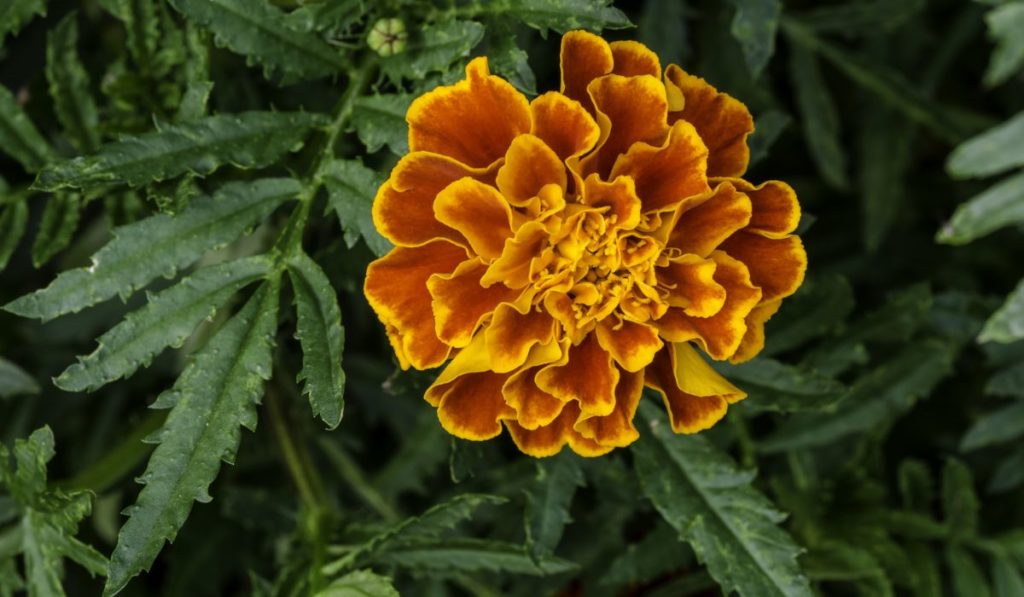Summer is unquestionably one of the best times of the year. You get to spend time with family and friends outdoors, hopefully with a tasty BBQ to set the mood. But what about those pesky mosquitoes? Is there any good way to can keep them out of your yard?
Planting mosquito-repelling plants like citronella, lavender, catmint, and marigolds can go a long way towards keeping your yard mosquito-free. Plant them in the spring after the last frost, allowing the plants plenty of time to bloom before the mosquitoes begin to become a problem.
Are you wondering if there’s anything else you should know about mosquito repelling plants? Let’s take a look at some important information about which plants work best and how you can take excellent care of them this summer.
Do Mosquito-Repelling Plants Really Work?

Before you start to decorate your yard with the recommended mosquito-repelling plants, do they actually work? The answer is yes, they do — but only to a certain extent.
Mosquitoes are put off by the oils mosquito-repelling plants excrete. These oils also are what give the plants their unique scent. Many natural bug sprays, such as Babyganics Insect Spray (on Amazon), contain the oils of mosquito-repelling plants to help keep them away.
That being said, these oils only last about 2 hours when sprayed on your skin. So, while the oils might be more potent and effective than the plant themselves, planting a mosquito-repelling plant will give you more lasting protection.
Just know that the protection provided by these plants, while longer lasting than a bug spray, isn’t as complete since you are just sitting near the plant rather than rubbing its oils on your skin. For best results, you’ll need more than one mosquito repelling plant, and you’ll need to sit close to it when you spend time outside.
What Are the Best Mosquito-Repelling Plants?
There are numerous different types of mosquito-repelling plants, some of which work better than others. Below are some of the best options that you should consider for your yard or patio.
Citronella
Citronella is a type of grass that is fairly simple to add to your yard. You probably recognize the name as this plant is the active ingredient in many natural bug sprays and bug-repelling candles (on Amazon).
While citronella is by far the best mosquito-repelling plant, it’s finicky and needs special care to grow. Citronella needs filtered sunlight, meaning it can’t be in the shade or the sun, but needs to be planted under a tree. It also needs space and can grow up to six feet wide, so you’ll need to think carefully about where you plant it.
Lavender
Lavender is a great mosquito-repelling plant. Although it doesn’t work quite as well as citronella, it is easier to grow and smells amazing.
Place Lavender plants in the direct sunlight, and give them plenty of room to grow — about 2-3 feet each. They will bring all sorts of bees to your yard to help it flourish while also repelling pesky mosquitoes.
Catmint
Catmint makes the list because of how easy it is to grow and the fact that this plant produces an oil that actually works better than DEET at repelling mosquitoes! Be careful, however, because the reason this plant is so easy to grow is that it can be considered a weed as it will take over your entire garden bed.
If you do go with catmint, ensure it has its own garden bed, far enough away from other beds so that it won’t overtake them. You may even want to consider a raised box of these on your patio if you are truly planting them only for mosquito-repelling properties.
Marigold
Marigolds are the best of both worlds since they’re easy to grow, and they also keep mosquitoes away from your yard. Unlike the other plants on this list, however, they are relatively small, and they do best when planted in pots.
The good news is, when you plant them in pots, this makes it easy to move them around your yard to wherever you sit for the purpose of keeping mosquitoes at bay.
What Time of Year Should You Start Planting Mosquito-Repelling Plants?
Most mosquito-repelling plants only work effectively when they’re in full bloom, meaning you want to plant them early enough in the season that they have time to grow before the mosquitoes begin to arrive in droves.
But before you get too eager, know that most mosquito-repelling plants won’t survive a frost, especially marigolds, so ensure you wait until the last frost has passed before you begin planting. Marigolds need especially warm soil to flourish, therefore, it’s recommended you start these indoors and only move them outdoors in May or June once the weather has improved significantly.
Are Mosquito-Repelling Plants Toxic?
Unfortunately, while citronella and lavender are some of the best insect repellents, they shouldn’t be in your yard when you have cats or dogs, as they can act as a poison when ingested by either animal.
Marigold and catmint, on the other hand, are safe for both cats and dogs, so these two may be higher on the list if you have pets at home. You can also plant basil and rosemary, both of which are somewhat safe for animals (as long as they don’t eat more than a few bites). You’ll just want to keep an eye on your pets during outside time if you do go with either of these mosquito repelling plants.
Plant-Care Tips to Keep in Mind This Summer
Ready to plant some mosquito-repelling plants in your yard? Here are some tips to keep in mind as you do so.
Don’t Over Water
One of the main things that attract bugs to your yard in the first place is overwatering. While mosquito-repelling plants can help keep the pesky bugs away, give them a hand and ensure you don’t have standing water in any of your plants.
Remove Weeds and Plant Debris
Certain types of weeds and plant debris can also attract bugs. Take a little time each week to inspect your plants, keeping the area around them clear of weeds and debris, so the bugs don’t have anything to feed off of.
Plant Strategically
Not every plant in your yard can be a mosquito repellent, but if you plant strategically by mixing non-repellent plants with those that repel pests, you can likely keep your whole yard clear of bugs.
Final Thoughts on the Best Plants for a Mosquito-Free Yard

As you can see, mosquito-repelling plants aren’t a myth, and they really can help you keep your yard mosquito-free this summer if they’re planted correctly and taken care of!
So, next time you head to the store, grab a few mosquito-repelling plants to place near your patio and enjoy your summer without bugs buzzing in your ears.








